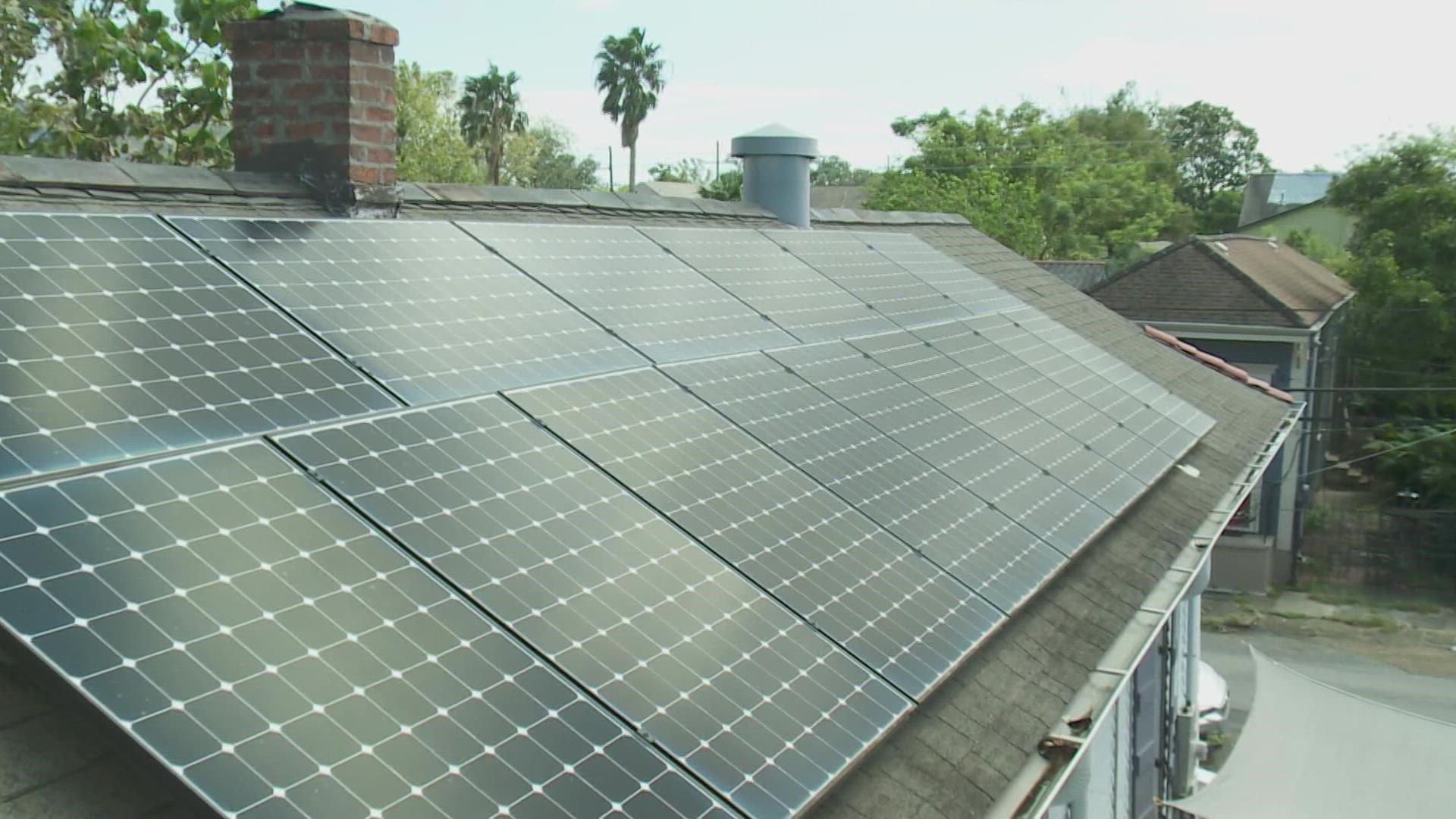NEW ORLEANS — When Hurricane Ida wiped out power in Southeast Louisiana, it created deadly conditions.
Of the 29 deaths in the state linked to the storm, more than half were from heat exhaustion or carbon monoxide poisoning due to generators.
"We just don't need elderly people to die after a hurricane because of heat exhaustion ever again," Devin de Wulf with the Krewe of Red Beans said.
While many were desperate for electricity, De Wulff was able to share it. He says the solar panels and batteries at his home in the Bywater produced more than enough power for the 10 days he was off Entergy’s grid.
His front porch became an outlet to help his neighbors.
"To hook up Mr. Roy's oxygen machine, to hook up my other neighbor's refrigerator, I had a phone charging station outside, I had an ice machine that was working. So, I could give people cold drinks," De Wulf said.
"It's a mess down here and I know Entergy is working hard to get people back online, but you got pockets of people who haven't had power for 17 days and we can go in and hang a battery and connect it to the solar system and they're going to have power," Tom Neyhart said.
Neyhart is the CEO of Posigen, a solar energy company based in Metairie. He says calls to their office are non-stop following the hurricane.
Neyhart believes the storm exposed the consequences of relying on only one source of power.
“We spent $280 million on a gas fired plant in New Orleans East that didn't come online for days,” he said. “If we had spent one quarter of that on micro-grids, on storage, on renewables that get powered by the sun you would've seen neighborhoods come back so much quicker."
Of the 9,000 solar units in the region, Neyhart says only 123 were damaged to the point that they couldn’t come back online after Ida.
Of course, there’s a cost to all of this.
"Panel installations are going to be anywhere from $10,000 to $20,000 based upon the size of the house, the power you're going to use,” Neyhart said.
Then there’s the battery, which can be another $10,000. That prices some people out, but Devin DeWulff says now is the time to rethink out approach and invest in renewable.
"This is the type of thing that I think should be on every elders household, every restaurant in our city should have one so they can feed people, not throw away all the food, and I honestly believe that the state of Louisiana should pay for it or the U.S. Treasury pays for it,” he said.
That’s a pricey proposition, but considering all the suffering we’ve seen, doing the same thing over and over can cost us in other ways.

